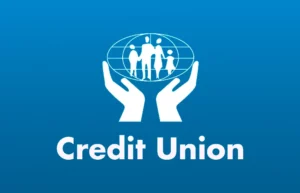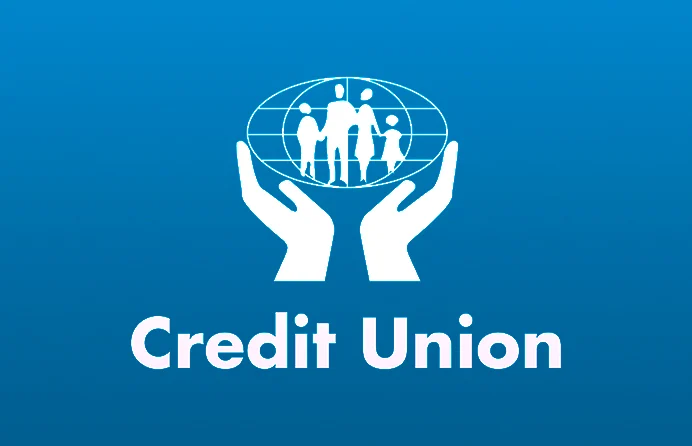In today’s economy, many people are wary of taking out loans to buy a car or make home improvements. Mostly if you have had trouble with debt in the past, that doesn’t mean you can’t get the money you need to buy a car, take that vacation, or make your home more energy-efficient.
Credit unions offer smaller loans with friendlier terms than banks and other financial institutions. If there aren’t any credit unions nearby, you may be concerned about being able to get a loan from one. But as it turns out, credit unions offer several benefits over banks and other lenders. There are high chances that there is a credit union very close to you.
In this article, we will explore the pros and cons of getting a loan from a credit union and all you need to know about this type of loan.

What is Credit Union?
This is a financial institution that provides banking and other financial services to its members. Credit unions are member-owned organizations that exist to help people improve their financial lives.
You may have seen credit unions advertised in your local grocery store or on TV. They offer some features that banks don’t, like lower interest rates and more flexible terms on loans. Credit unions are not-for-profit organizations, so they aren’t driven by the need to make a profit. Instead, they work for their members and use the money they make to offer better service and lower fees.
This union is often run by volunteers and is located in communities all around the country. When you join a credit union, you not only get great financial services but also help support your local community. Credit unions have been around for several years and have grown in popularity since then. As of 2017, there were over 7,000 credit unions in the United States alone.
Difference Between Credit Union Loan And Bank Loans
When it comes to loans, credit unions and banks are very different institutions.
Credit unions are owned by the people who bank with them and usually have a limited number of members in the community they serve. These smaller groups of members make it easier for the credit union to do business with the local community.
And because they have less overhead, credit unions can offer more competitive rates and better interest rates than banks.
Banks, on the other hand, are much larger institutions with more overhead costs. This is because they cater to a national clientele base. Banks also offer different types of loans than credit unions do. Credit union loans are often shorter term and require no collateral, whereas a bank loan is typically a long-term loan that requires collateral from you as the borrower.
If you’ve been searching for an option for borrowing money without having to put up any collateral, or if you just want to borrow from a company that is close to home, Then this financial institution may be your best bet.
Is It Harder To Get Credit Union Loan Than Bank Loan?
Getting a loan from a credit union is not harder than getting one from a bank. Depending on the qualifications of the borrower, credit unions may offer better rates and terms for loans.
The biggest difference between the two types of loans is that credit unions are more likely to focus on your local community and want to ensure you can pay back the money you borrow. As such, they are more likely to be willing to work with borrowers who have less-than-perfect credit scores.
The benefit of Getting a Loan from a Credit Union
The first advantage of getting a loan from a credit union is the smaller size of the loans. Credit unions offer loans for less than $25,000.
The average credit union will have a maximum loan amount of around $17,000. On the opposite end, many banks and other lenders begin at $100,000 and increase from there.
Credit unions also offer low-interest rates on their loans. You may find that you qualify for an even lower interest rate if you are a member of this union or if you are willing to switch your current bank account to one with the credit union.
Another benefit of getting a loan from a credit union is that they often have higher approval rates than most banks. A recent study found that 75% of people were approved for loans by credit unions, while only 54% were approved by banks and other financial institutions.
Disadvantages of Getting a Loan from a Credit Union
A downside of credit unions is that they generally don’t offer as many types of loans as banks do. A credit union may not offer financing for cars or home improvements, for example.
Why Consider a Credit Union Loan?
Credit unions are not-for-profit organizations that provide financial services to their members to make it easier for them to save and borrow money.
Credit unions also promote financial stability and economic development in the communities they serve.
A major benefit of credit union loans is that they typically have friendlier terms than banks and other financial institutions. Credit unions take into account your ability to pay back the loan because they don’t just want your money. They want your loyalty as well.
This means that if you have bad credit or need an installment plan, there is a good chance you will qualify for a credit union loan.
Another important thing to note about these types of loans is that interest rates are usually lower than bank rates, which can save you lots of money over time. Oftentimes, there is no charge for late payments or overdrafts so long as you pay on time most of the time. You may also be privileged to refinance your current loan with a low-interest rate at your credit union too.
How to Know if You Qualify for a Loan From a Credit Union?
The first thing you need to know when looking into a credit union loan is whether or not you qualify. That may look like an easy question, but it has many variables.
You will have to speak with someone at your credit union, and they will need to know some information about your current financial situation. They need to know your income and if you are the head of household, single, divorced, or widowed.
They also want to know the amount of debt you currently have to determine if you qualify for a loan. There are certain qualifications that most credit unions require before giving out loans. The following qualifications are common among many credit unions: – Be at least 18 years old – Live in the area served by the credit union – Have a checking account with the credit union – Have a good payment history on any debts.
Conclusion
Credit Union loans may be a great option for you if you don’t have a good credit history or don’t have a high enough limit on your credit card. Credit unions loans are also a good option if you are looking for a loan with a lower interest rate. However, there are some disadvantages to credit unions as well.








2 comments
It’s actually a nice and useful piece of information. I am happy that you simply shared this useful information with us.
Please keep us informed like this. Thanks for sharing.
It’s great to learn that trying out a credit union loan can help you fund your big purchase and create a flexible plan for it. I heard that my aunt wants to try investing in a car recently. I should discuss this idea with her so we can find a nearby union whenever she needs it.